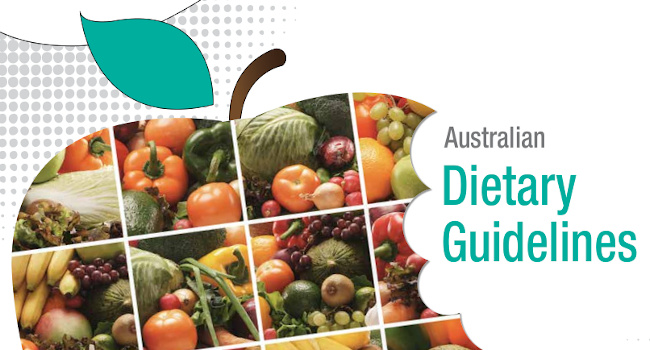The Australian Dietary Guidelines, the standard that is used to guide the nation to healthy eating, is up for review and they want to know what you think should be changed or included.
Dietary guidelines are important. From public hospital menus to school food programs, Australia's dietary guidelines influence public and private health policy. Everyone on the front line of health care is guided by the advice. So, it needs to be accurate, independent and evidence-based.
Vegan Australia is encouraging you to complete the initial survey for the review, which is being overseen by the National Health and Medical Research Council. They are asking for the general public and professionals to share their reflections on the current guidelines. These were published back in early 2013, so a review is clearly well overdue!
This is the first step in what is expected to be a lengthy review process. Throughout, Vegan Australia will be a strong advocate for more support for vegan diets in the guidelines as well as a general shift from animal-based to plant-based foods in all areas.
Note: the survey closed 3pm Monday 15 March 2021.
The survey allows you to suggest four topics on food and nutrition to update and four to be added. Here are some suggestions for the topics. Use these or come up with your own.
Suggested topics to update in the guidelines
- More emphasis should be placed on "plant-rich" diets. Most Australians do not eat enough fruit and vegetables. This is the International Year of Fruits and Vegetables after all. Canada's recent review of their dietary guidelines has been very successful in promoting an abundance of plant foods.
- The guidelines need to make the assumption that plant-based diets are the norm and always recommend plant sources of nutrients in preference to animal sources. So, for example, when discussing legumes/beans they should not say they are beneficial "particularly for those consuming vegetarian or vegan meals", but rather that they are "beneficial for all".
- A bigger focus on whole foods and whole grains is needed.
- Dairy is not an essential food, so must be removed from the main guidelines plate altogether. There is no evidence it needs to be a separate group. As many Australians are lactose intolerant, it is not suitable to include dairy in our nation's dietary guidelines. The prevalence of primary lactose intolerance is estimated to be 7 to 20% for people of Caucasian descent, 65 to 75% for African descent, over 90% in some Asian populations and approximately 70% in Australian Aboriginal populations. Symptoms of lactose intolerance include abdominal pain, bloating, flatulence, diarrhoea, nausea and vomiting.
- Processed meats are a Group 1 carcinogen. The recommendation for processed meats should be changed from "limit intake" to "avoid".
- Red meats are a Group 2A carcinogen. The recommendation for red meats should be to strongly limit or avoid consumption.
- With the growing prevalence of Australians opting for a plant-based or vegan diet, comprehensive recommendations must be given for those following these eating patterns. For example, reliable sources of vitamin B12 and omega-3 fatty acids need to be clearly outlined.
- The guidelines recommend junk food "sometimes and in small amounts". As the guidelines aim for providing the highest level of health, they should instead recommend these foods to be "extremely limited or avoided."
- Expand on the health benefits of dietary fibre and emphasise it more.
- Care should be taken to avoid bias and to be aware of vested interests when reviewing studies. For example, the source of funding for a study can bias the results.
Suggested new topics to include in the guidelines
- The current food system has a negative impact on the environment and hence on human health. The guidelines should promote diets that are both healthy and environmentally sustainable.
- Emphasise that healthy plant-rich diets are affordable compared to standard Australian diets.
- The guidelines should try to avoid future health crises, like the pandemic we are currently facing, by recommending against the consumption of animal foods. The production of animal foods allows otherwise harmless viruses to mutate and jump from animals to humans and is thus the underlying cause of most infectious diseases.
- The guidelines should be culturally sensitive, Australia being a multicultural society. This includes making provision for those following a vegan diet.
- Ensure the guidelines are able to educate health practitioners about vegan diets so they can serve their clients better.
Note that the current guidelines do contain some good advice. The first two recommendations in the guidelines are to eat more vegetables, fruit and legumes/beans and to eat more grain foods, particularly wholegrain cereals. The improvements we would like to see are mainly about adding more emphasis to the evidence-based benefits of a plant-based diet, and for recommending plant foods over animal foods.
Read more about the survey, including permitted topics, at Review of the 2013 Australian Dietary Guidelines.
Note: the survey closed on Monday 15 March 2021. Thank you to everyone who completed the survey. Vegan Australia used the above suggestions to make a submission as well.
Can you help us? If you are a health professional who would like to help Vegan Australia in our advocacy for better Australian Dietary Guidelines, please get in touch with us.

